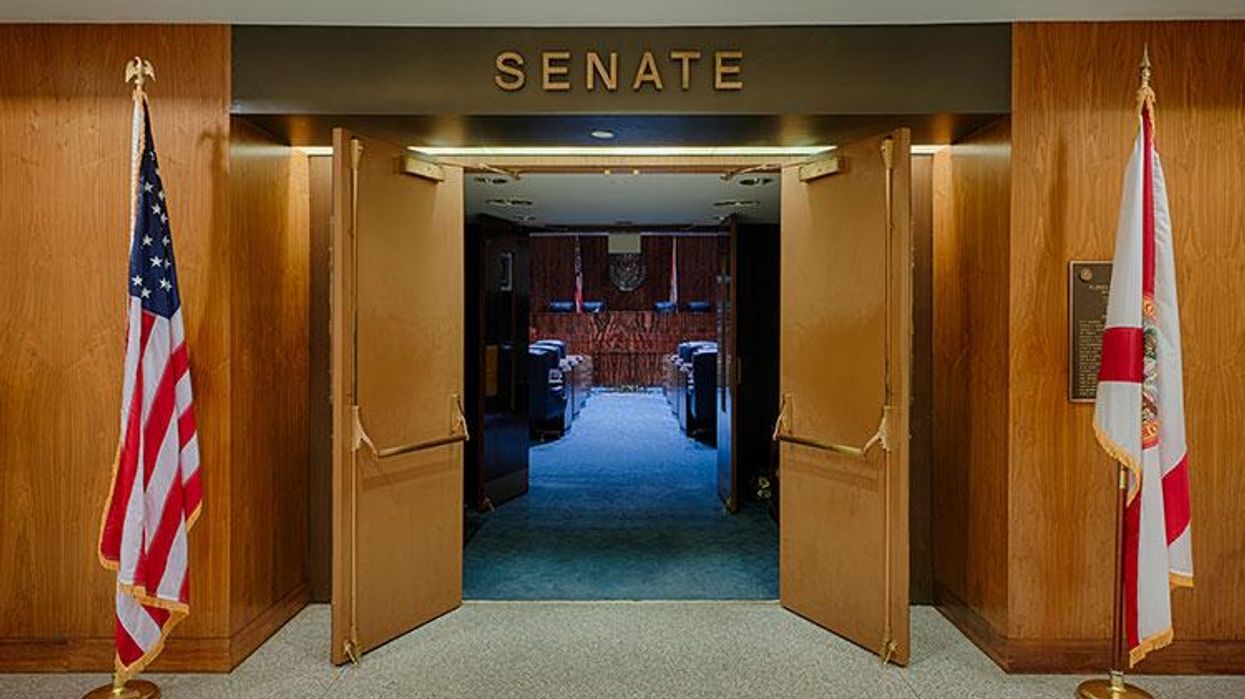Politics
Could Florida Finally Pass LGBT-Inclusive Nondiscrimination Law?

The Sunshine State remains one of the biggest without such a law, but this year backers are feeling hopeful.
February 16 2017 4:30 AM EST
By continuing to use our site, you agree to our Privacy Policy and Terms of Use.

The Sunshine State remains one of the biggest without such a law, but this year backers are feeling hopeful.
Even though a wave of "thoughts and prayers" surrounded LGBT people in Florida last year, the Sunshine State remains one of the most populous in the nation where discrimination based on sexual orientation and gender identity remains legal. But that could change this year, as a bill has been introduced in the state legislature that would prohibit such discrimination in employment, housing, and public accommodations.
"To me, this is as important as any piece of legislation I will file this year," says state Rep. Rene Plasencia, a Titusville Republican. He believes the chances of getting the bill passed and put in front of Gov. Rick Scott are as strong as ever.
Last year, similar legislation for the first time got a vote in the Florida legislature, though only in the House, where it died on a tie vote in committee. The state Senate never took up a bill in 2016. LGBT activists in Florida, though, seem optimistic about the legislation winning support this year. "Momentum continues to grow," says Nadine Smith, executive director of Equality Florida. "We've seen the business community start to consolidate behind the measure, not only because it's the right thing to do but because of bottom-line competitiveness."
Plasencia sponsored the legislation along with state Rep. Ben Diamond, a Democrat from St. Petersburg. Since being filed, the bill has drawn 12 other lawmakers as cosponsors, including three Republicans; Republicans control the Florida House 79-41 and the Senate 25-15. Plasencia says the real trick, though, will be making sure chairmen are willing to take up the legislation once it gets assigned to committees.
Similar legislation has been filed in the Florida Senate by state Sen. Jeff Clemens, a Lake Worth Democrat, but that legislation has not picked up any cosponsors. Clemens has also sponsored a bill that would outlaw conversion therapy.
Of note, all three state lawmakers driving the legislation represent parts of the Interstate 4 corridor, a famously moderate part of Florida. Plasencia lives in Orlando, the community devastated last year by the attack at Pulse, a gay nightclub, where 49 people were killed in addition to the shooter. But the lawmaker says he will not exploit the Pulse tragedy to get this legislation passed.
Supporters have no doubt such legislation will eventually win support in the legislature, whether it's this year or in future sessions. As far back as 2013, the University of Florida's Bob Graham Center for Public Service surveyed voters in Florida and found support for a ban on discrimination based on sexual orientation or gender identity. "Oftentimes, people are shocked to find these protections are not already on the books," Smith says.
She also notes that city and county governments throughout the state have passed local ordinances that block the same discrimination Diamond and Plasencia's bill seeks to stop. "Many of these legislators already live in places where these protections exist, and often have for a decade or more."
Hannah Willard, public policy director for Equality Florida, says 56 percent of Floridians already live somewhere that a local discrimination ban is in place. That's more local antidiscrimination ordinances than any other state, and every ordinance covers LGBT individuals.
In fact, Jacksonville City Council members just Tuesday passed an ordinance that prohibits businesses in that city from discriminating based on sexual orientation or gender identity. In Jacksonville, the state's largest city, similar legislation had failed in 2012 and 2016.
And while pro-business lawmakers and Chamber of Commerce groups previously have bought into arguments that antidiscrimination regulations could potentially hurt businesses or discourage companies from locating in Florida, the outcry last year over North Carolina's notorious House Bill 2 may indicate the tide has turned. The North Carolina legislation, barring cities from enacting or enforcing LGBT-inclusive nondiscrimination laws, in addition to restricting transgender people's access to public restrooms, resulted in boycotts and loss of business, and ultimately led to the ouster of Republican Gov. Pat McCrory, who had signed the bill into law after it was passed in a special session of the legislature. "Everyone was paying attention to what happened in North Carolina and learning some lessons," Smith says.
Still, Florida lawmakers in recent sessions have also considered anti-LGBT legislation, including so-called religious freedom bills and trans bathroom restrictions. Even though such legislation has not made it to the governor's desk as it did in states like North Carolina and Indiana, social conservatives plan to call for more bills of the sort this year, regardless of business concerns.
Additionally, the move comes as reports persist about a draft executive order, providing a nationwide license for anti-LGBT discrimination in the name of "religious freedom," that could be signed by President Trump. Plasencia isn't worried about that because he believes such an order violates the First Amendment rights of Floridians and would be stopped by the courts.
Even if an LGBT-inclusive antidiscrimination bill passes both houses of the Florida legislature, it would also need the support of Republican Gov. Scott, who resisted calls last year, after the Pulse massacre, to issue an executive order protecting state employees and government contractors from discrimination.
Scott has often dodged questions about LGBT issues in the past. He took no position on a so-called bathroom bill considered by lawmakers in 2015, for example, but did criticize President Obama's guidelines that called on schools to let transgender students use bathrooms matching their gender identity.
Scott's office did not return calls from The Advocate on the antidiscrimination legislation filed this session.
Charlie Kirk DID say stoning gay people was the 'perfect law' — and these other heinous quotes